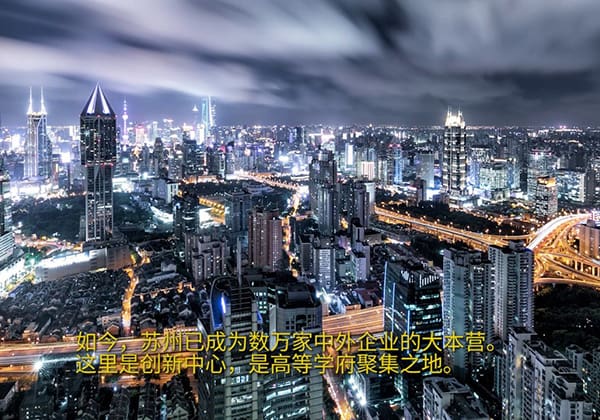Throughout the COVID-19 pandemic, Australian universities have constantly wrestled between the need to offer interactive learning experiences whilst mitigating the educational barriers posed by offshore learning. Indeed, it was recently found that new international student enrolments in Australian institutions have halved, owing to the country’s stringent border restrictions amid ongoing negotiations on quarantine quotas and arrangements.
In response to these challenges, The University of Sydney has been expanding operations in its overseas Centre in Suzhou, China, to cater to its offshore Chinese international students.
Opened in 2016, the University states that the Centre in China was founded to foster ‘research and industry collaboration,’ as well as ‘facilitate work placements, internships and other learning experiences for Australian students in China.’ To this end, it has signed four Memoranda of Understanding to strengthen USyd’s research partnership with three Chinese/Hong Kong universities — Fudan, Tsinghua University Graduate School (Shenzhen), and the Chinese University of Hong Kong.
Since last year, the Centre has expanded its offerings to allow interested offshore students in China to participate in online classes together in an in-person setting.The USYD Study Centre was officially launched on 21st March 2021 in Suzhou by Michael Milne, Executive Director of the Centre in China, Dan Li, Business Bonsul of the Australian Consulate-General in Shanghai, and Juan Sun, Vice-President of the Suzhou Dushu Lake Entrepreneurship University.
According to a University spokesperson, the Study Centre offers a 10-week academic Peer Studying Program (PSP) that ‘provide[s] some of the University’s Chinese international students who are studying remotely from China with an opportunity to meet their peers and access additional support programs.’ The focus of the PSP is to bring together those affected by the COVID-19 pandemic. In addition to rooms available for remote classes, the Centre organises study skills sessions, workshops, cultural activities, corporate visits and other social opportunities. As of 2021, approximately 350 students are regularly using these services.
Although the Centre provides classroom spaces, it performs no formal teaching roles. There are no accommodation arrangements at the Centre, however the University has advised that students can access apartments and rooms provided by Dushu District’s local government, which has rental options ‘similar to Sydney [University] Village.’
When asked about the USyd Study Centre’s engagement with student organisations such as the University of Sydney Union (USU) or the Student Representative Council (SRC), the Centre’s representative noted that it has reached out to the USU Debating Society and Chinese Debating Society to run workshops catered to students in Suzhou, and has also provided information about SRC services via its ‘Student Life WeChat’ account. Furthermore, the Centre in China indicated that it is open to being approached by interested USU clubs and societies.
The precinct that USyd’s Centre in China is located in is Dushu Lake Science and Technology precinct — a designated zone facilitating research collaboration primarily between the National University of Singapore (NUS), the Singapore Government, and Suzhou’s local government. USyd is not the only institution to occupy Dushu, with Oxford’s OSCAR (Oxford Suzhou Centre for Advanced Research) institute, UCLA’s Institute for Technology Advancement amongst some other 30 institutions also based in Dushu.
USyd’s arrangement aligns the university with other GO8 institutions such as Monash, UNSW, and UTS, where comparable overseas study centres were also established in China. Within the wider context, USyd’s move reflects calls from the Federal Government for universities to adopt permanent blended learning options. For instance, in April 2021, the Federal Government laid out a consultation paper for international higher education where it advocated for a conscious move towards offshore/blended delivery over the next decade: “We have learned that Australian education, research and training are not dependent on students or research partners being in Australia.”
USyd also has an arrangement with Taylors College Sydney, a private education provider operated by Study Group Australia, with their overseas studies centre in Shanghai running the University’s Foundation Program – an alternative pathway for international students. USyd clarified that the two institutions are entirely separate; however, it is aware of Taylors’ arrangements due to their collaboration. Taylors’ Shanghai Centre embraces a fully hybrid online learning environment. For instance, at Taylors’ Remote Learning Centre, according to Study Group Australia’s CEO Alex Chevrolle, accommodation is provided through a contract with Airbnb. Meanwhile some of its premises are rented from the Shanghai Institute of Technology and WeWork – a co-working space whose founder famously exited the company following steadily declining profits.
Other than USyd, grassroots initiatives have burgeoned in response to travel restrictions imposed owing to the COVID-19 pandemic with groups such as UAVS-NSW (United Associations of Vietnamese Students – NSW) organising scheduled study group sessions using commercial office spaces to connect offshore Vietnamese students with one another. According to Nhi Bui, Vice President of VISUS (Vietnamese International Students at the University of Sydney), these facilities provide ‘canteens [and] projectors’ in addition to academic support.
It is expected that the USyd Study Centre will operate for the foreseeable future given recent announcements from Federal Treasurer Josh Frydenberg during Budget 2021 that Australia’s current border restrictions will be maintained until at least mid-2022.





